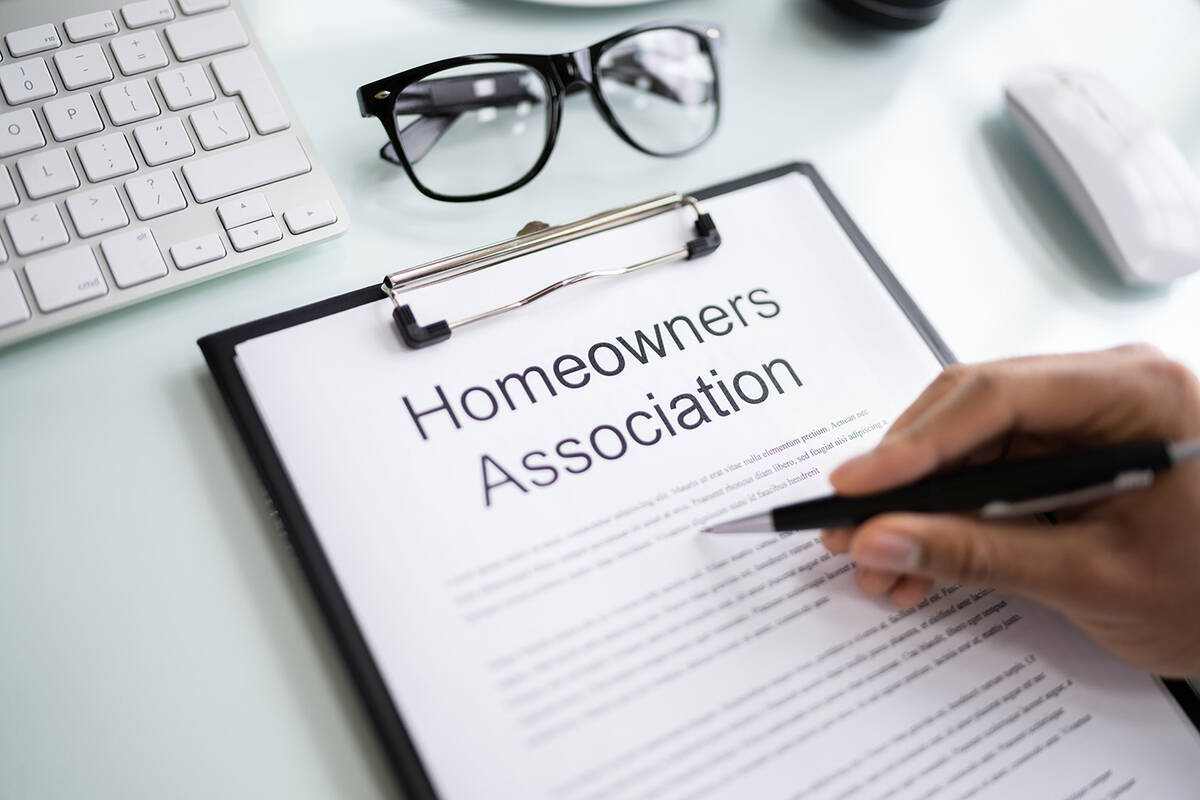HOA doubles down on its insurance for townhouses
Q: This year (2023), because of statute Nevada Revised Statute 116.3113 (and its ammendments) my homeowners association has obtained a separate insurance policy to cover shared walls between townhouses, single-family-attached homes.
I have been researching the NRS 116.3113 and ammendments to determine whether this statute includes personally owned and insured townhouses, and if so, are they to be subject to an HOA taking out a policy on the “shared walls and roofing” and subsequently charging the collective townhouse homeowners. Please note a personally owned townhouse is generally covered under personal property insurance policies, which include the “shared walls and roofing” between the townhouses and subsequent damage to the neighboring home.
My understanding of the written statute, and carefully reading the definition of terms including “common elements” — our “shared walls and roofing” are not open or exposed to the public — this statute and its ammendments are for “condos, business and hotel units,” and not townhouses. This added insurance is redundant and not a “benefit of unit owners,” which the statute actually states as reason for the institution of an added policy. The added expense has almost doubled the expense for me for insurance I already carry and would be the primary coverage for any loss or damage to my home and the neighbor should the damage or repairs effect their property.
Can you verify that my findings are correct so I can present them to my HOA directors whom I believe may have misunderstood an over zealous insurance representative.
A: In responding to your question, I have asked for assistance from one of the insurance experts (also an educator to respond), Mark Coleman, CIRMS, vice president of NFP Property &Casualty Services, LLC. Here is what he has to say on the subject:
I would disagree with her interpretation of the property insurance requirement of NRS116.3113 listed in the question. NRS116 is based on the Uniform Common Interest Ownership Act and has been amended several times over the years to update terms when UCIOA changes. About 28 states base their HOA laws on this model federal act. NRS116.3113 is clear in that any building that has more than one unit must be included in the property insurance coverage provided by the association.
Further, the association’s property coverage is primary for all property claims. You cannot insure just common walls and roofs. You must insure the entire building to original specification both inside and outside. That form of coverage is called single entity coverage. The association’s property insurance does not need to include owner added betterments and improvements. These insurance requirements pertain to not just condominiums, but townhomes, duplexes, triplexes, any building with two or more units.
On April 2, 2020, Nevada Real Estate Division issued Advisory Opinion 20-03, which clearly states all buildings regardless of how they are titled must be included in the property insurance coverage if that building is two or more units. Even when you refer to the building as a single-family attached home it has two units and must be included. Insurance, like all business, has its own language. The owner of any unit that has the primary property coverage with the association should have an HO6 policy if owner occupied, and fire dwelling policy if it is rented to others. HO6 is referred to as a condominium wwners policy as insurance underwriters have no specific policy for townhomes or duplexes. I agree with your community manager that the association should be providing the property insurance for your townhome. The board made the correct decision in purchasing insurance that included all buildings with two or more units.
Q: At the request of the homeowner, Our HOA recently held an open meeting of the Hearing Committee for a violation. Two board members were present for the open portion. Following the open portion, the Hearing Committee went into closed deliberations. Should the board members have been allowed to stay during deliberations There is no clear language in our governing documents regarding this.
A: If the board members were just observers and were not party to the violation, they should not participate during the deliberation process. The reason is the homeowners who may be sanctioned by the Hearing Committee may want to appeal the decision to the board. As a footnote, homeowners who appear before the Hearing Committee are not entitled to attend the deliberations per Nevada Revised Statutes 116.31085 (4c).
Q: Our board president just sent out this manifesto for our upcoming board meeting on Jan. 25. Everyone I have spoken to, including various community managers and homeowners in different communities both here in Vegas and other states, can’t believe that this is even being proposed. Have you ever seen anything like this and what do you think? We value your expert opinion.
Dear Board:
At the Jan. 10, 2023 meeting, we will be voting on adopting the manner (see below) by which we add agenda and newsletter items, and if passed by majority vote, will be followed going forward.
1. Vote on all known proposed agenda items at a meeting, for the next meeting. This is a majority vote. If an item does not get a majority vote of those present after quorum, then it is not added to the agenda for the next meeting.
2. Any potential agenda items that come up between meetings can be added by unanimous vote via e-mail. If everyone does not agree via e-mail (unanimous), then it is not added to the agenda for the next meeting.
3. Only agenda items approved by majority director vote after quorum at the previous meeting, or unanimously in between meetings via e-mail, will be on the next agenda.
This is the same process, if passed by board majority vote, for adding articles to the newsletter.
Please submit any agenda or newsletters via email or at the Jan. 10, 2023 meeting for board vote.
A: The proposed process to add an item to the agenda does not provide any flexibility for this association. Issues not planned should not be delayed. The proposed recommendation is for those unplanned issues to vote by email requiring unanimous approval instead of by majority vote.
While I can understand the rationale by the president, if the board chooses to accept his proposal then my recommendation is to change from unanimous to majority vote for unplanned issues that occur between meetings.
Barbara Holland, CPM is an author, educator, expert witness on real estate issues pertaining to management and brokerage. Questions may be sent to holland744o@gmail.com






















